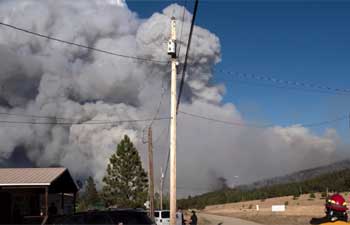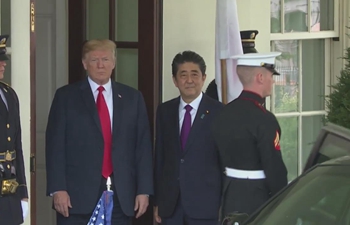WASHINGTON, June 9 (Xinhua) -- Renegotiations on the North American Free Trade Agreement (NAFTA) could lead to a new trilateral trade deal with substantial changes or two separate trade agreements, U.S. President Donald Trump said Saturday.
"We'll either leave it the way it is as a threesome deal with Canada, the United States and Mexico, and change it very substantially...or we're going to make a deal directly with Canada, directly with Mexico," Trump said at a press conference at the Group of Seven (G7) summit in Quebec, Canada.
"So we are either going to have NAFTA in a better negotiated form or we're going to have two deals. Both of those things could happen," Trump said, warning that it would be "very bad" for Canada and Mexico if no deal could be reached among the three countries.
Trump also said NAFTA negotiators were "pretty close" to agree on some kind of sunset provision, which could allow the trade agreement to be renegotiated every five years.
Talks on renegotiating the NAFTA began in August 2017 as Trump threatened to withdraw from the 23-year-old trade deal. The three countries remain divided over the rules of origin for automobiles and other issues following months-long negotiations.
The G7 summit came after the Trump administration announced last week to impose tariffs on steel and aluminum imports from the European Union (EU), Canada and Mexico, which has drawn strong opposition from the domestic business community and quick retaliation from U.S. major trading partners.
Trump told reporters that he had demanded for "fair and reciprocal" trade practices and proposed to eliminate all trade barriers at the G7 summit.
"No tariffs, no barriers, that's the way it should be, and no subsidies," he said, warning that other countries could lose access to the United States if they don't reduce trade barriers.
"I did suggest it and people were -- I guess they're going to go back to the drawing board and check it out," Trump said.
Trade experts and officials are skeptical about Trump's idea of zero tariffs, as the Trump administration has slapped high tariffs on imports of solar panel, washing machines, steel and aluminum products.
European Council President Donald Tusk warned on Friday that Trump's protectionist trade measures pose a threat to the rules-based international order.
"What worries me most, however, is the fact that the rules-based international order is being challenged. Quite surprisingly, not by the usual suspects, but by its main architect and guarantor: the U.S.," Tusk said, adding the United States and other G7 members would continue to disagree on trade, climate change and the Iran nuclear deal.













